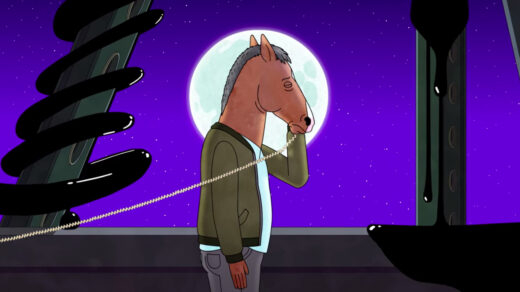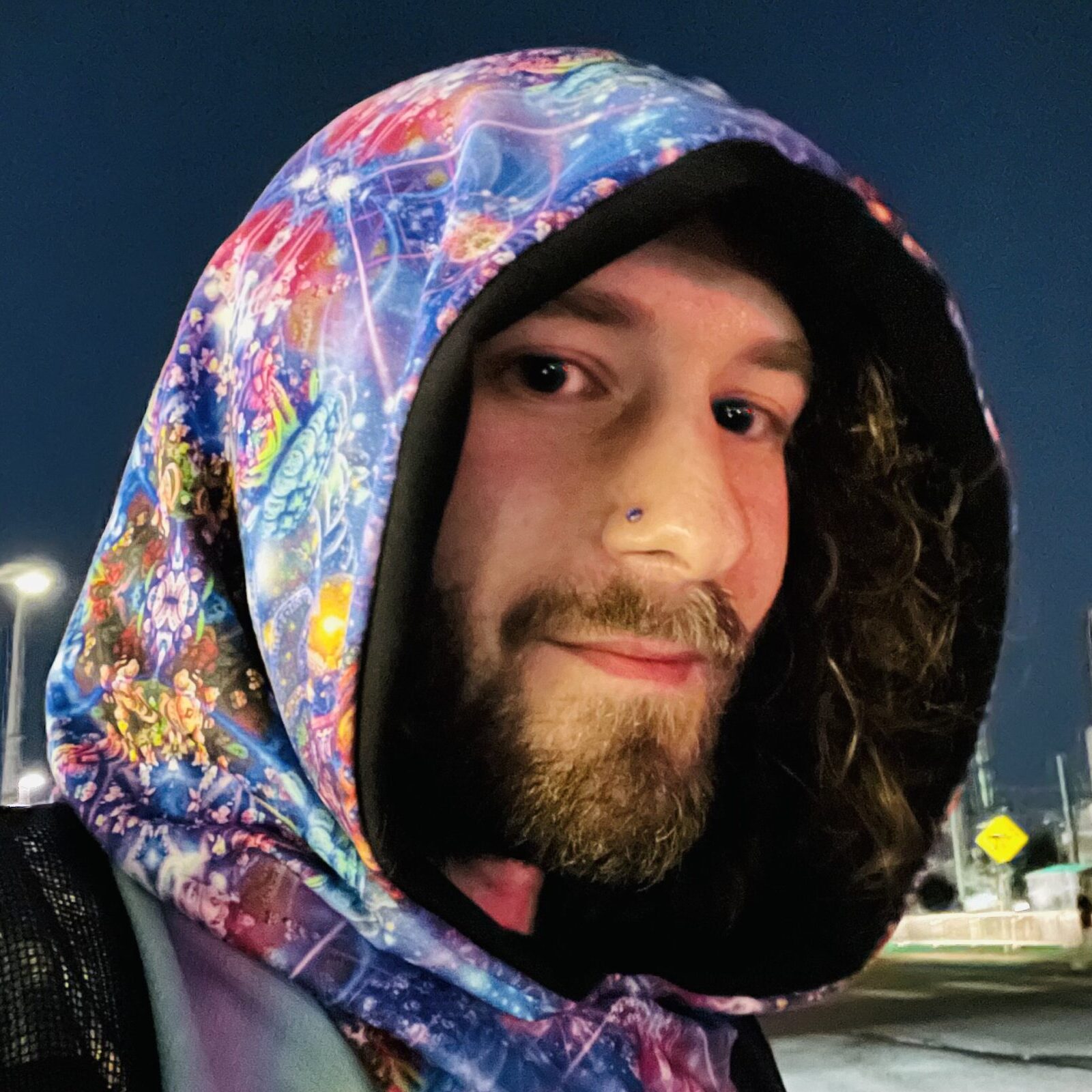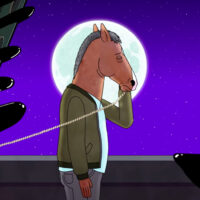In so far as one denies what is, one is possessed by what is not, the compulsions, the fantasies, the terrors that flock to fill the void.
Ursula K. Le Guin (1971) The Lathe of Heaven
Historically, I’ve experienced frequent and long-lasting periods of anxiety. I worry about the future, the past, my actions, my relationships, almost everything. For a long time, I thought anxiety was keeping me alive. I thought that without anxiety, I’d miss something, slip up, and ruin my entire life. With anxiety carrying such a big responsibility, the thought of not worrying could fill me with dread. I’d think, “If I stop worrying, how will I be prepared if something bad happens?” Sometime last year, I noticed that even though I worry about the future a lot, it seems to prepare me for almost nothing. Most of what I’m worried about never happens. Conversely, most of the difficulties I’ve faced as an adult were not things I was worried about, and yet I got through them. I saw this anxiety wasn’t helping me, but I didn’t feel comfortable letting go of it. Surprisingly, using Instagram and exploring my relationship with Instagram led me to a new perspective on my relationship with anxiety.
I didn’t have an Instagram account for a long time; I didn’t want one. I read about the effects it seems to have on mental health and the privacy concerns, and I didn’t have any interest. The problem I ran into was that the music scene I enjoy is all on Instagram. If a setlist for tonight’s show gets released, it will be on Instagram. If tickets are going on sale next week for a festival, the first announcement about it will be on Instagram. And most difficult of all, when I meet people at shows, they want to exchange Instagram usernames. I understand trading usernames instead of phone numbers; my preferred platform for this is Snapchat. But nearly everyone I met asked for my Instagram, and when I didn’t have one, we never reconnected. One day, when this was preventing me from exchanging contact information with a handful of people, I signed up for the website and started giving out my username.
At first, I found Instagram to be a useful tool for keeping up with shows and people I met at shows. I’d open the app in the morning, check artists’ reels for any updates, check my messages, and close the app. But then the feed started dragging me in. I don’t know when or how it started, but I started browsing the feed and subscribing to meme pages. I subscribed to mental health pages, comics, clothing pages, and I started actually using Instagram.
I was already familiar with doomscrolling, as I am a longtime Reddit user and reigned in my doomscrolling on Reddit years ago. If I’m ever on Reddit and I notice I’m feeling uneasy, nervous, on edge, sad, or really any feelings other than curious or amused, I immediately close Reddit. By doing so, I can disconnect from Reddit and be with my feelings. This solves the two most likely problems in the moment for me: 1) I opened Reddit to distract myself from a feeling, or 2) my Reddit feed has a lot of emotionally charged content on it right now, which is negatively affecting my mood.
I started noticing similar feelings with Instagram. I noticed I was compulsively opening Instagram throughout the day and into the night. While I was ready for bed at 11, I was going to bed at midnight. And what was I gaining from scrolling at nothing for an hour? What was I gaining from looking at memes and posts I had already seen after looking at the app all day? I noticed the repetition was negatively affecting my mood. I had goals I could accomplish during this Instagram-scrolling time (finishing a project, going to bed, etc.), and instead I was participating in a solo activity that wasn’t bringing me any joy. This wasn’t intentional downtime; this was mindlessly wasting time. I could hear the thoughts in my head, “Why don’t I put the phone down and do something else? Is this even bringing me happiness? Do I want to be scrolling? Why am I doing this if I could be intentionally resting? This doesn’t feel like rest. This doesn’t feel relaxing. Isn’t mindlessly scrolling on my phone supposed to be relaxing? I’m just bored. And I could be doing anything else. Why am I not doing something else? Why am I doing this if I don’t even like it?” In these moments, I wasn’t living presently or intentionally. I started to suspect I was using Instagram as an excuse or a distraction to put my brain on autopilot and be less intentional in the present moment.
I’m pretty sure I know what was going on here: Instagram is addictive. This has been discussed in studies, articles about the studies, and lawsuits. The algorithm is designed to keep presenting us different content until we tap/click on something, and it makes a note of what we like and continues adjusting itself to keep us engaged. It’s designed to never stop trying to distract us. Accepting Instagram is addictive, the story in my head is the disconnect between my engagement with Instagram and my desire to do anything else was a symptom of this addictive tendency.
Realizing this, I decided to try the same strategy I did with Reddit: close Instagram as soon as I notice any uneasy feelings. Additionally, I try to notice if I’m scrolling compulsively and close Instagram if so. As I started this practice, I noticed I was opening Instagram when I felt feelings I didn’t immediately want to sit with: I advocated for myself, and it triggered feelings of nervousness? Open Instagram. Feeling sad a friend left after visiting? Open Instagram. Feeling anxious about something I said to another person? Open Instagram. When I started noticing this pattern and immediately closing Instagram, I started sitting with these thoughts more. I noticed, “I feel bored. I feel sad. What does that mean?”
I forget which famous person said this, but “thoughts which we avoid should be examined”. When I realized I was using Instagram to avoid thoughts and feelings, I knew I wanted to sit with and see these feelings. Adjusting this behavior, I immediately found being with my feelings more rewarding than browsing Instagram.
But then I realized: I’ve felt this before. The feelings and bodily sensations I now associate with “I’m on Instagram to avoid whatever I’m actually feeling/thinking” — I’ve felt these before Instagram. I’ve felt these so many times.
I started noticing how compulsively I turn to anxiety, similar to opening Instagram. From here, I started asking myself, “Am I addicted to anxiety? For me, is anxiety a distraction from being in the present moment? Is it a distraction from what I’m feeling? For me, is anxiety a way to excuse myself from living intentionally?”
Identifying problematic stimuli outside my body seems easier than recognizing this internal pattern with my thoughts. I think this is because ego and identity can make the thoughts challenging to sift through. I observe that I’m on Instagram, and I notice how I’m feeling, and I can identify what looks like a cause-and-effect relationship to me. And I can put the phone down and look away from it. But when it’s all thoughts in my head…how do I know which are the ones I don’t want to entertain? How do I stop doomscrolling my own mind? Isn’t worrying how I notice when action needs to be taken to ensure my continued existence? How can I survive when I’m not worried? When my brain feels like an endless feed of reasons to worry, how do I make sure I’m not ignoring legitimate concerns?
Examining these questions, seeing that maybe I can choose to refocus when I’m feeling anxious, I felt scared. For so much of my life, anxiety and worry have been background noise. And if I decided not to pay attention to that noise, how would I know I wouldn’t fall flat on my face? I didn’t. But I realized I felt more confident knowing I’d be trying this intentionally than living unintentionally. If I make a mistake, I know why, and I can adjust my strategy. If someone asks what happened, I can tell them I’m trying something new, and it didn’t seem to work out here. And everyone I’ve surrounded myself with in life gives me patience to grow. Realizing this, trying this new approach to anxiety and taking a risk felt like the right move.
I’ve been exercising this new approach, and I’ve observed more of my habits and some changes:
Historically, if I don’t have anything planned after work, I often find myself bored and looking for something to do, mindlessly browsing the internet on my phone. I’ll browse a streaming catalog three times, notice shows I want to watch, but I won’t actually put anything on. I may think about playing a video game, but I don’t. I may think about going for a walk with my dog, but I don’t. I find myself feeling bored. I pull out my phone. I realize what I’ve done and put away my phone. I wonder what I want to do. I find myself thinking about my day. I remember when I advocated for myself in a conversation earlier. I suddenly feel nervous due to trauma around advocating for myself. I worry that what I said might have come out wrong. I worry that I’ve alienated someone. I replay the conversation in my head over and over again. I hope the other person is ok. I start to spiral into anxiety. I have a story in my head that this anxiety will go on the rest of the day and will affect my mood. I worry, “How do I stop this?” I think, “I need to focus on this anxiety and let it exist. Don’t hide from my feelings.” Years ago, I found I often hid from my feelings. I don’t want to do that, so I’ve focused on the anxiety. But as I’ve explored here, perhaps anxiety is the actual distraction from my feelings.
With this in mind, I’ve been trying something new when I notice this pattern beginning: I ask myself, “Am I living intentionally?”, and I examine what I was just feeling. Similar to putting down the phone when I notice I’m compulsively on Instagram, I let go of the anxiety I compulsively turn to. When I let go of this anxiety, I observe I actually feel a lot of feelings! I might be feeling sad about a family member who left after a long visit. I might be feeling disappointed that a video game wasn’t as good as I wanted it to be. I might be feeling lonely because I haven’t seen some friends in a few weeks. I might indeed be feeling nervous from earlier in the day because I advocated for myself and the experience was triggering. And when I step back from this compulsive anxiety and ask myself, “What was I just feeling?”, I look right at the feeling, and I experience it. And then it’s like the feeling slips away, like trying to remember a dream. I ask myself, “Is this the natural course of this feeling?” I didn’t try to hide from it. I didn’t attempt to push it away. I looked right at it, and it said, “Thank you, that’s all I needed.”
After that, to my surprise, I actually do something. I watch that anime I’ve had on my watchlist for almost a year. I play that video game I’ve been meaning to get back to. I go for a walk with my dog. I eat more intentionally, and I go to bed when I want to. I intentionally rest. I intentionally relax. I intentionally unwind. I intentionally do things I want to do for me. I think, “I want to do this”, and I do it. I don’t ask, “What if it’s the wrong decision? What if I won’t like it?” I don’t think, “I’m so exhausted, maybe tomorrow.” I actually have time to do things, and I have energy for them.
I’ve been checking in with myself. I want to make sure I’m not ignoring a feeling or part. But it doesn’t feel that way. I feel liberated. I feel lighter, freer even. I don’t feel the knots in my stomach I associate with pushing feelings away. The days seem longer (in a good way), the sunshine seems brighter, and strangers seem less threatening.
I find myself curious about what tomorrow will bring.











